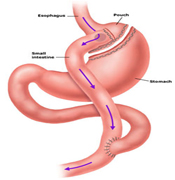Why does Taste Change After Gastric Sleeve?
Taste Change After Gastric Sleeve -
Sleeve gastrectomy, another name for gastric sleeve surgery, is a common weight-loss procedure that involves cutting out a section of the stomach to leave behind a smaller tube-like stomach. This process significantly alters hormones which impact appetite and metabolism in addition to limiting the amount of food consumed. Many patients experience a change in taste perception following gastric sleeve surgery which is an intriguing but less talked-about side effect.
We will discuss the science underlying taste changes following gastric sleeve surgery the reasons behind these changes and strategies for patients to adjust to their new tastes in this blog.

A) Metabolic Disorder ⇄ Insulin Resistance ⇄ Type 2 Diabetes: The interconnection
Let’s understand sleeve surgery: understanding the process itself is crucial to understanding why taste changes following gastric sleeve surgery.
About 75–80% of the stomach is removed during the procedure leaving the stomach smaller and sleeve-shaped. This decrease in stomach capacity affects not only how much food can be eaten but also how different hormones related to hunger and satiety are produced. Ghrelin also known as the hunger hormone is one of the main hormones impacted by this surgery and decreases dramatically following the procedure.
Modifying taste and food preferences is largely dependent on this hormonal shift. Taste perception and hormonal changes. One of the main ways that gastric sleeve surgery modifies taste perception is through hormonal changes. The stomach secretes a hormone called ghrelin which is known to increase hunger and improve food palatability. Reduced stomach size results in a decrease in ghrelin production which modifies food taste and reduces appetite.

Dt. Kshama Bhoir
Bariatric Dietician & Content Writer
Related Article



